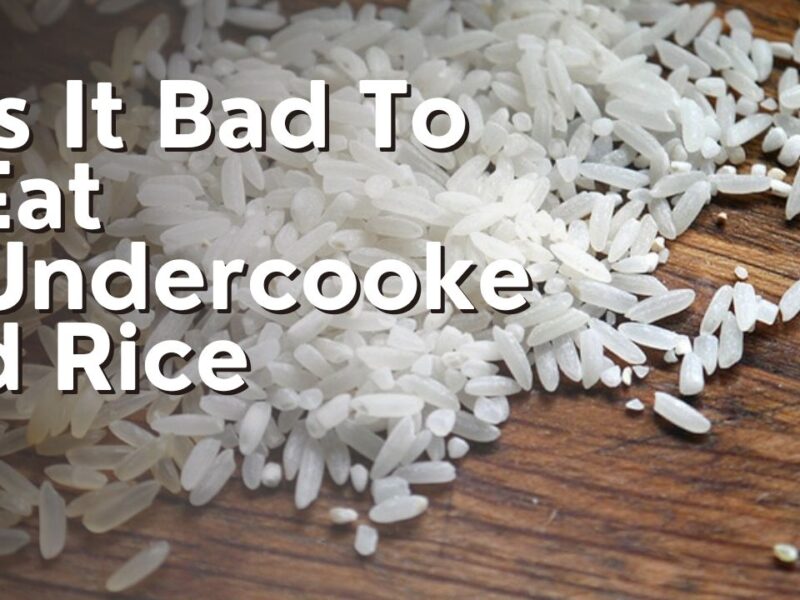Have you ever wondered why you can hear your dog’s stomach? It’s a common occurrence that can sometimes leave us puzzled. As a dog owner myself, I’ve often found myself listening intently to those rumbling sounds coming from my furry friend’s belly.
In this article, we will explore the reasons why we can hear our dogs’ stomachs and what it might mean for their health. We’ll delve into the digestive process in dogs, discussing factors such as hunger and appetite, as well as potential issues like gas and digestive problems.
Additionally, we’ll touch upon dietary factors that can contribute to stomach noises. By the end of this article, you’ll have a better understanding of when these sounds are normal and when they might warrant concern.
So, let’s get started on unraveling the mystery of why we can hear our dogs’ stomachs!
The Digestive Process in Dogs
The digestive process in dogs involves the contraction and movement of muscles, which can create audible noises. When dogs eat, their food travels through the esophagus and into the stomach. In the stomach, the food is mixed with stomach acid and digestive enzymes to break it down into smaller particles. This process is called mechanical and chemical digestion.
As the food is broken down, the stomach muscles contract and move the contents around. These contractions, known as peristalsis, help to further break down the food and mix it with digestive juices. The movement of the muscles can sometimes create rumbling or gurgling sounds, which can be heard as stomach noises.
Additionally, the movement of gas and fluids through the intestines can also contribute to the sounds you hear. When the food leaves the stomach and enters the small intestine, it continues to be broken down and absorbed. This process can create additional noises as the food and digestive juices move through the intestines.
In most cases, hearing your dog’s stomach noises is completely normal and nothing to worry about. However, if you notice any other signs of discomfort or if the noises are accompanied by vomiting or diarrhea, it may be a good idea to consult with your veterinarian to rule out any underlying digestive issues.

Hunger and Appetite
When hunger strikes, it’s like a rumbling beast ready to be satisfied. As a dog owner, I’ve often wondered why I can hear my dog’s stomach growling. It turns out that hunger and appetite play a significant role in this phenomenon.
Dogs, like humans, have a complex digestive system. When they are hungry, their stomach muscles start to contract, causing the rumbling sound we hear. This is a natural response to signal to the brain that it’s time to eat. Additionally, the secretion of gastric juices and the movement of gas in the intestines can contribute to the noises.
To better understand hunger and appetite in dogs, let’s take a look at the following table:
| Hunger | Appetite |
|---|---|
| Physiological sensation of needing food | Psychological desire to eat |
| Controlled by the hypothalamus in the brain | Influenced by external factors such as food smells and visual cues |
| Can be satisfied by eating a balanced meal | Can sometimes be satisfied by chewing on toys or bones |
Knowing the difference between hunger and appetite can help us better meet our dogs’ needs and ensure their overall well-being. So, the next time you hear your dog’s stomach growling, remember that it’s just their way of telling you they’re ready for a meal!
Gas and Digestive Issues
Excess gas in a dog’s stomach can lead to discomfort and unpleasant odors. Common causes of excess gas include eating too quickly, swallowing air while eating or drinking, and consuming certain types of food that are difficult to digest.
To help reduce gas in your dog’s stomach, try feeding smaller meals more frequently. Avoid foods that are known to cause gas. Ensure your dog has plenty of opportunities to exercise and relieve themselves.
Common Causes of Excess Gas
One possible contraction to begin the sentence with a word other than ‘You’, ‘When’, or ‘Excess’ could be ‘It’s common to experience excess gas due to certain foods.’ Excess gas can be caused by a variety of factors, including the foods we eat. Certain foods, such as beans, broccoli, and carbonated drinks, can produce more gas in the digestive system. Additionally, swallowing air while eating or drinking quickly can contribute to excess gas. It’s important to note that some medical conditions, like irritable bowel syndrome (IBS) or lactose intolerance, can also lead to increased gas production. Understanding the common causes of excess gas can help us make informed decisions about our diet and lifestyle.
Here is a table that illustrates some common foods that may cause excess gas:
| Food | Gas-producing Potential |
|---|---|
| Beans | High |
| Broccoli | High |
| Cabbage | Moderate |
| Onions | Moderate |
| Carbonated drinks | High |
| Dairy products | Variable |
| Apples | Low |
| Peaches | Low |
By being aware of these potential triggers, we can make adjustments to our diet to minimize excess gas and improve our digestive health.
How to Reduce Gas in Your Dog’s Stomach
If your furry friend is experiencing discomfort, there are simple ways to help them reduce gas in their tummy. One effective method is to change their diet. I found that switching to a high-quality, easily digestible dog food made a big difference for my pup.
Avoiding foods that are known to cause gas, such as beans, broccoli, and dairy products, can also help. Another tip is to feed your dog smaller, more frequent meals instead of one large meal. This can prevent overeating and reduce the chances of gas buildup.
Additionally, make sure your dog eats slowly and doesn’t gulp down their food too quickly, as this can lead to swallowing air and increased gas.
Lastly, regular exercise can aid in digestion and reduce gas. Taking your dog for daily walks or engaging in playtime can help keep its digestive system healthy.
Dietary Factors
When it comes to the noises coming from my dog’s stomach, I’ve learned that diet plays a major role. Certain foods can cause more gas and digestive issues, leading to louder stomach noises.
That’s why it’s important to choose the right food for your dog, considering its specific needs and sensitivities.
The Impact of Diet on Stomach Noises
The impact of diet on stomach noises is significant. What your dog eats can affect the rumblings and gurgles you hear. Certain foods can cause more gas and indigestion, resulting in louder and more frequent stomach noises. For instance, a high-fiber diet can lead to increased gas production and more active digestion, leading to louder stomach sounds. Ingredients like soy, wheat, and dairy can be difficult for dogs to digest, causing more stomach noises. It’s crucial to pay attention to your dog’s diet and ensure it includes high-quality, easily digestible ingredients. By providing a well-balanced and appropriate diet, you can minimize those stomach noises and keep your furry friend feeling happy and healthy.
Choosing the Right Food for Your Dog
Finding the perfect food for your furry companion can make all the difference in their overall health and well-being. When it comes to choosing the right food for your dog, there are a few factors to consider.
First and foremost, you want to make sure the food is nutritionally balanced and meets all of your dog’s dietary needs. Look for dog food that contains high-quality ingredients and avoids any fillers or artificial additives.
Additionally, consider your dog’s specific needs, such as their age, size, and any health concerns they may have. Consulting with your veterinarian can be helpful in determining the best food for your dog.
Remember, a healthy diet can help reduce stomach noises and promote a happy and healthy pup.

When to Be Concerned
If you notice persistent and loud rumbling sounds coming from your dog’s stomach, it may be a sign to seek veterinary attention. While it is normal for dogs to have some stomach noises, excessive or unusual noises could indicate an underlying issue that needs to be addressed. Here are four situations when you should be concerned about your dog’s stomach noises:
- Loss of Appetite: If your dog’s stomach is making loud rumbling noises and they are refusing to eat, it could be a sign of an upset stomach or a more serious condition. Loss of appetite, coupled with unusual stomach noises, should prompt a visit to the vet.
- Vomiting or Diarrhea: If your dog’s stomach noises are accompanied by vomiting or diarrhea, it could be a sign of an infection or gastrointestinal issue. These symptoms may require medical intervention to prevent dehydration and further complications.
- Abdominal Pain: If your dog appears to be in discomfort and their stomach noises are loud and persistent, it may indicate abdominal pain. This could be caused by an obstruction, digestive disorder, or other underlying health problem that needs immediate attention.
- Changes in Behavior: If your dog’s stomach noises are accompanied by lethargy, restlessness, or other changes in behavior, it could be an indication that something is wrong. These changes should not be ignored and should be discussed with your veterinarian.
Remember, while some stomach noises are normal, persistent and unusual sounds should not be ignored. It’s always better to be safe than sorry when it comes to your beloved furry friend’s health.
Frequently Asked Questions
Can a dog’s stomach growling be a sign of a serious health issue?
A dog’s stomach growling can sometimes be a sign of a serious health issue. It could be due to digestive problems, gastrointestinal inflammation, or even an obstruction. It’s best to consult a veterinarian to determine the cause and provide appropriate treatment.
How can I prevent my dog’s stomach from making loud noises?
To prevent my dog’s stomach from making loud noises, I can try feeding smaller, more frequent meals, avoiding foods that cause gas, and ensuring my dog has regular exercise and stays hydrated.
Is it normal for a dog’s stomach to make noises after eating?
Yes, it is normal for a dog’s stomach to make noises after eating. It’s called borborygmi and happens as the food is digested. If the noises are excessive or accompanied by other symptoms, consult a vet.
Why does my dog’s stomach make noises even when they are not hungry?
My dog’s stomach makes noises even when they’re not hungry because their digestive system is constantly working. The noises are caused by the movement of gas and fluids. It’s completely normal and nothing to worry about.
Are there any home remedies to help alleviate my dog’s stomach noises?
There are a few home remedies that can help alleviate my dog’s stomach noises. I can try feeding smaller, more frequent meals, avoiding certain foods, and providing probiotics or digestive supplements recommended by my vet.
Conclusion
In conclusion, I’ve learned that being able to hear my dog’s stomach is a normal part of the digestive process. It can be caused by hunger, gas, or certain dietary factors.
While it may be concerning at times, it is usually nothing to worry about. However, if my dog shows signs of discomfort or if the stomach noises are excessive and persistent, it’s important to consult a veterinarian.
Overall, understanding why I can hear my dog’s stomach has helped me better care for their digestive health.


